Does Maqāṣid al-Sharī'ah have political implications?
The term 'Maqāṣid al-Sharī'ah' refers to the fundamental aims of the Sharī'ah. These aims represent the overarching objectives of Islamic law, and attempting to comprehend or articulate Maqāṣid without considering the context of the Sharī'ah would be incomplete. The studies and discussions related to Maqāṣid are helpful in assimilating the diversity of the foundational principles of Islamic Sharī'ah in a way that never contradicts Sharī'ah itself. Sheikh Ellal Alfasi, a Moroccan political thinker and author of the book ‘Maqāṣid al-Sharīah al-Islamiyyah wa Makārimuha’ say that there are two aspects to consider 'Maqāṣid al-Sharī'ah al-Islamiyyah.' Firstly, it pertains to the unchanging principles and objectives within Islamic law. Secondly, it involves elevating these principles to assess and critique colonial, modern, and liberal values. This showcases the Sharī'ah's capacity to maintain its autonomy while adapting to evolving socio-political circumstances.
Core Concepts of 'Maqāṣid al-Sharī'ah'
Imam al-Juwaynī and Imam Al-Ghazzali enumerated religion, life, lineage, intelligence, and wealth as the five things that must be protected. Shaykh Ahmed Raissouni, the Chairman of the Global Scholars' Association and a researcher specializing in Maqāṣidi issues, explains verses 151 to 153 of Surah Al-An'am and asserts that these five things are covered in these three verses. Summarizing the teachings of Imam al-Juwaynī, Imam Ghazzali (r.a.) classifies the Maqāṣid into: Essentials (Ḍarūriyiyyāt), Necessities (Ḥājiyyāt), and Adornments (Taḥsīniyyāt). Simply put, Fiqh al-Maqāṣid is concerned with bringing about maximum welfare (Maṣlaḥa) and preventing harm in human interpersonal life. Observing the priorities and trying to enact each one is the need of the hour.
'Maqāṣid al-Sharī'ah' and Political Perspective
Maqāṣid is inextricably interconnected with the politics of Islam. Faced with the question of what is between religion and politics, the prominent Tunisian scholar Nuruddin Khadimi says: 'The subject of politics is well-being, and well-being is the subject of Maqāṣid.' Hence, appropriate political action involves striving for the comprehensive well-being of individuals, families, and consequently, the entirety of society. Even when we construe 'politics' in the context of the state and the dynamic between rulers and the governed, politics fundamentally revolves around advancing the quality of life. The crucial point of focus lies in exploring its alignment with the principles of Sharī'ah. Sherman Jackson's observation on the place of revelation in human life is relevant here. He develops his concept within the dichotomy of 'of Sharī'ah' and 'non-Sharī'ah'. What is meant here is not the religious or non-religious aspects of life. Take the example of the minimum age requirement for obtaining a driving license. Establishing a specific age for this purpose could yield significant advantages, effectively curbing various negative outcomes. The same principle applies to traffic regulations. Jackson calls these areas 'Islamic secular' where revelation has not intervened definitively.
Alija Izetbegovic’s categorization of visions into ‘religious,’ ‘material,’ and ‘Islamic’ is particularly noteworthy in this context. 'Islamic' vision exists as an ethical framework even in the seemingly material realms of life. The focal point pertains to the expansive domains of life where ethical positions can be derived from a moral framework that is not explicitly dictated by revelation, yet remains enabled by the very presence of revelation. While 'Islamic politics' offers some ‘Islamically’ defined foundations, it also leaves plenty of space that is neither religious nor anti-religious in the overarching sense.
Application of politics through 'Maqāṣid al-Sharī'ah'
The application of reason encounters limitations when it operates within the framework of revelation (in this context, where revelation goes beyond conventional rationality). The concept that became evident from the Messenger of Allah's ﷺ statement, 'You are the most knowledgeable about your worldly matters,' in relation to date palm pollination, highlights the necessity for unbiased and astute inquiries. To be ‘Islamic’ there is to exercise intellect and thought within its ethical and epistemological framework. That is where seeking expert advice to identify what brings benefits and what brings hardship comes in handy. Dr. Yusuf al-Qaradawi has described his methodology as "rigorous in fundamentals (asal) and simplistic in sub matters (fara’)' (Atashdīdu fil uṣūl wa taysīru fil furu'). Sharī'ah provides heavens of ease for the sub matters while establishing them firmly at the roots.
It is in the remembrance of the divine presence that every person becomes moral and ethical. That is how he becomes the caliph of Allah (Khalifat Allah). The community of such persons is the good Ummah (Khairu ummah) raised for the people, enjoining good and forbidding evil. They are the mediocre Ummah (Ummat Wasat) who bear witness to the truth. The primary foundation of Islamic polity is the recognition, submission, and absolute obedience to the sovereignty of Allah. Along with justice, mutual cooperation, respect, brotherhood, freedom etc. introduced by Sheikh Yusuf al-Qaradawi and others as high social values are the ideas that should serve as pillars of Islamic politics. All of these should be conceptualized according to the Holy Qur'an and the Holy Sunnah, which are the highest sources of the believers (Al Marjaiyātul Ulyā).
Discussions about Islamic politics are taking place today in the age of nation-states, a product of modernity. Shaykh Ahmad Raissouni takes nation as a medium/means (wasīlā). Systematic and just administration should really be the goal. A change in means is possible for that course. New doors of Islamic politics must be opened by recognizing the structural violence that the state creates and is likely to create. The Khilafah concept is a universal vision that transcends the nation-state. It frees men from geographical boundaries and makes them brothers and sisters. This is emphasized by the Quranic verses that elucidate the creation and purpose of humanity. The Holy Qur'an says: “O mankind! reverence your Guardian-Lord, who created you from a single person, created, of like nature, His mate, and from them twain scattered (like seeds) countless men and women;- reverence Allah, through whom ye demand your mutual (rights), and (reverence) the wombs (That bore you): for Allah ever watches over you.”[1]
Here humans are evolving as a single race. Explaining the Qur'anic verse “I have only created Jinns and men, that they may serve Me.”[2] and “He Who created Death and Life, that He may try which of you is best in deed: and He is the Exalted in Might, Oft-Forgiving.”[3] Shaykh Raissouni observes that these verses refer to the Maqāṣid of human life. At the core of Islamic polity is a social system that is sound, benevolent, just, and above all welfare-oriented. Appropriate means are therefore essential to accomplish that goal. The aim and interest of Islamic politics is welfare in this world (Ṣalaḥiyyāt) and success in the hereafter (Falāh). In the explanation of the Most Gracious (Raḥmān) and Most Merciful (Raḥīm) among the holy names of Allah, 'Raḥmān' refers to the mercy of Allah that surpasses all in material life. 'Raḥīm' is a special mercy available to the believer. These practices imply that the practice of Islamic politics should be possible by ensuring the overall well-being of human beings. The Holy Qur'an's answer to the prayer of Prophet Ibrahim (a.s.) to provide security and resources to the believers breaking all the communal stereotypes is obvious, as the Holy Quran states: And remember Abraham said: "My Lord, make this a City of Peace, and feed its people with fruits,-such of them as believe in Allah and the Last Day." He said: "(Yea), and such as reject Faith,-for a while will I grant them their pleasure, but will soon drive them to the torment of Fire,- an evil destination (indeed)!"[4]
During a period when personal privacy is being encroached upon by the state, and an upsurge of violent nationalism is evident, what the modern era necessitates from the Muslim community is a focused exploration and research into topics that are currently sensitive. This approach can empower informed discourse and contribute to constructive solutions that respect individual rights and promote global harmony.
References;
Maqāṣid al-Sharī'ah al-Islamiyah wa Makaarimuha, Ellal Alfasi,2009.
‘Literalism, Empiricism, and Induction: Apprehending and Concretizing Islamic Law's Maqāṣid al-Sharī'ah in the Modern World’, Sherman A Jackson,University of Southern California, January 2006.
Islam Between East and West, Alija Izetbegović , Islamic Book Trust & Other Books, Calicut,2013, ISBN:9789380081359, 9380081359
Islamic Awakening Between Rejection and Extremism, Dr. Yusuf al-Qaradawi
Quran 4:1, 51:56, 67:1, 2:126
Endnotes
[1] Holy Quran: 04/01
[2] Holy Quran: 51/56
[3] Holy Quran: 67/02
[4] Holy Quran: 02/126
About the author:
Unais Kashmir is a PG Research Scholar in Islamic Thoughts and Modern Trends in Islamic Studies at Darul Huda Islamic University, Chemmad. He currently works as a freelance content writer for 'The Muslim Vibe', an online academic journal based in California, USA.
Disclaimer
The views expressed in this article are the author’s own and do not necessarily mirror Islamonweb’s editorial stance.

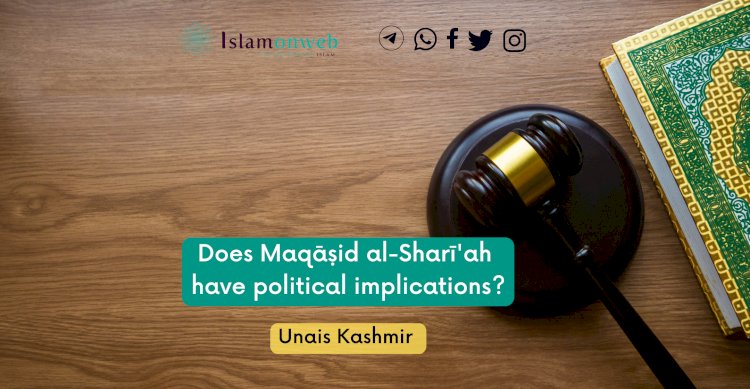


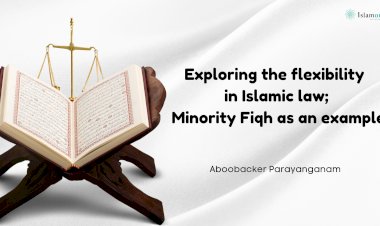
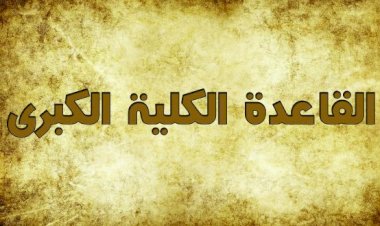
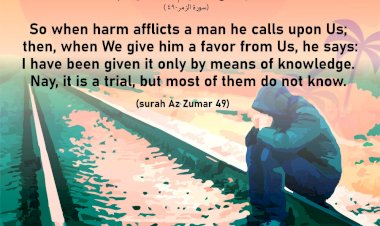
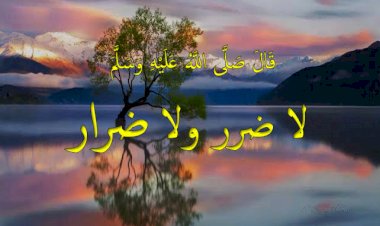
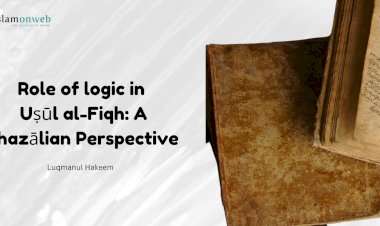
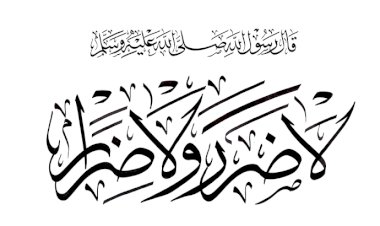














Leave A Comment